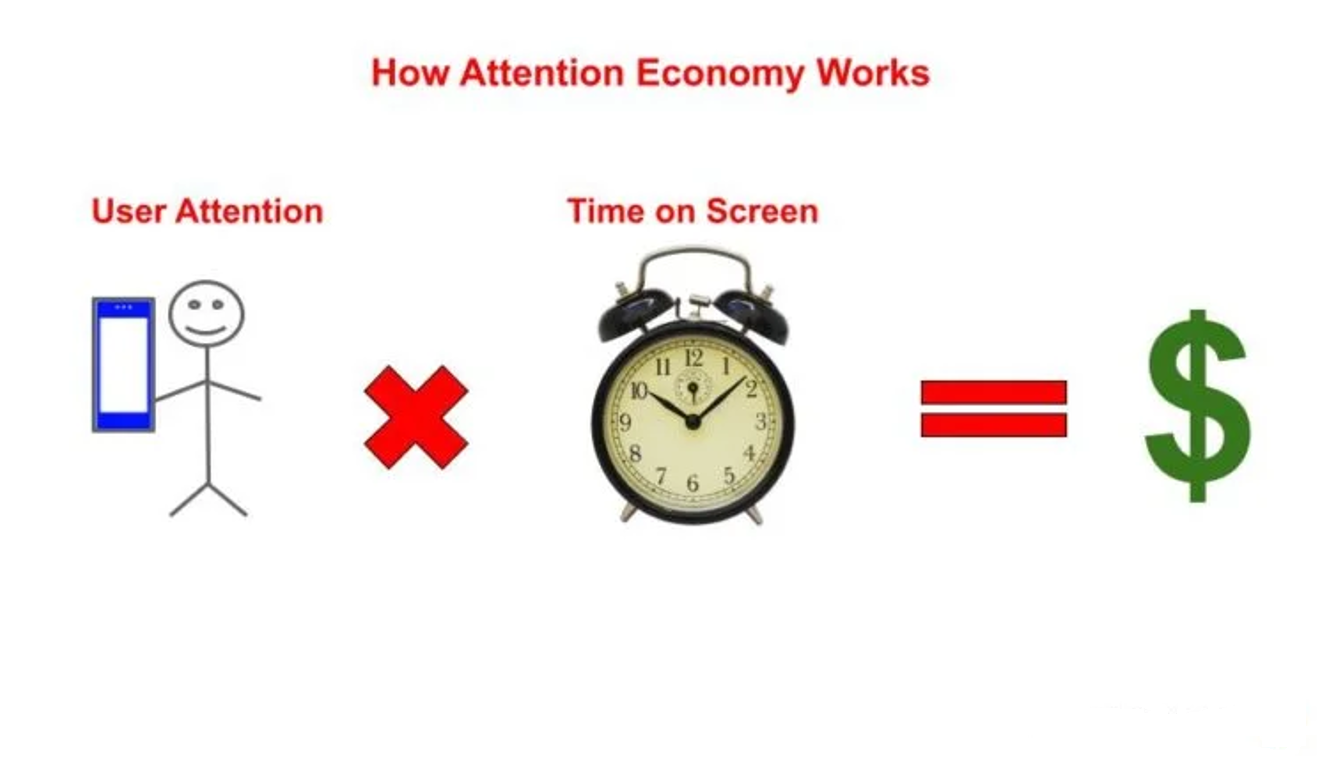19 Jan,26
Most Searched Keywords
16 Aug
What is the Attention Economy and What Are the Hidden Impacts of the Digital World on Humans?

In today’s digital age, human attention has become as valuable as gold, oil, or even digital currencies like Bitcoin. Our time and focus hold vital importance for digital platforms and tech companies, as they constantly compete to capture our attention. The foundation of this economy lies in the idea that humans possess only a limited amount of time and attention, and whoever succeeds in capturing it gains dominance in this economy. As American researcher Herbert Simon once stated, “A wealth of information creates a poverty of attention.” With the explosion of digital content, human attention has turned into a scarce and highly valuable resource that must now be managed under new economic rules.
Social media platforms such as Facebook, Twitter, Instagram, and YouTube use advanced algorithms to grab and hold our attention, seeking to fully dominate our online behavior. These algorithms monitor both our online and offline activities, tailoring content according to our interests. For example, if you are a supporter of a famous politician, your feed will be filled with videos and posts praising that figure. On the other hand, if you oppose the same politician, your feed will show you critical and opposing content. In this way, platforms don’t just capture our attention they also shape our thoughts, behaviors, and even our perception of reality. Ultimately, they transform our attention into a tradable commodity, generating billions of dollars in revenue. According to the British magazine Start-Up, commercial advertising revenue from social media platforms is expected to reach $400 billion by 2025.
One of the biggest challenges of the attention economy is the weakening of our ability to focus and evaluate critically. Among the overwhelming flow of online information, only the content that captures our attention seems valuable regardless of whether it is truly useful or not. The result is a culture of superficiality over depth, where meaningful content is overshadowed by irrelevant but attention-grabbing material. In this new system, the value of information is no longer determined by its quality but by its ability to attract human attention.
These changes affect not only our individual lives but also reshape the broader structure of society. For instance, individuals who are highly active on social media whether in politics, economics, sports, or entertainment gain disproportionate visibility and influence. At the same time, our personal lives become trapped in the illusion that whatever we see on social media represents reality, when in fact, the truth may be quite different. This situation reminds us of the urgent need to consciously manage our attention and remain vigilant against the manipulations of these platforms.
Before it is too late, we must redirect our attention toward meaningful, productive, and positive activities. We need to free ourselves from these “algorithmic prisons” and focus on aspects of life that guarantee our personal growth and social progress. The attention economy teaches us that our attention is a precious asset and only by using it wisely can we free ourselves from the negative impacts of the digital world and lead more purposeful lives.
